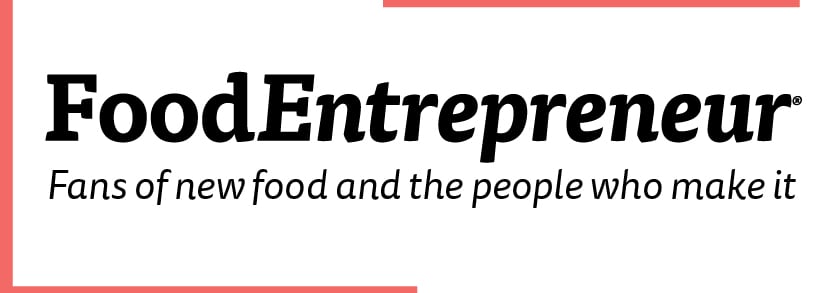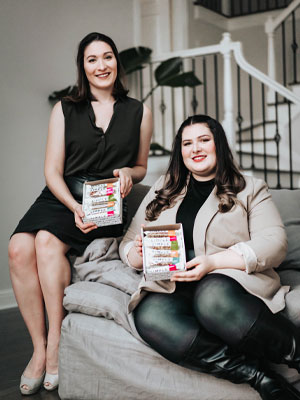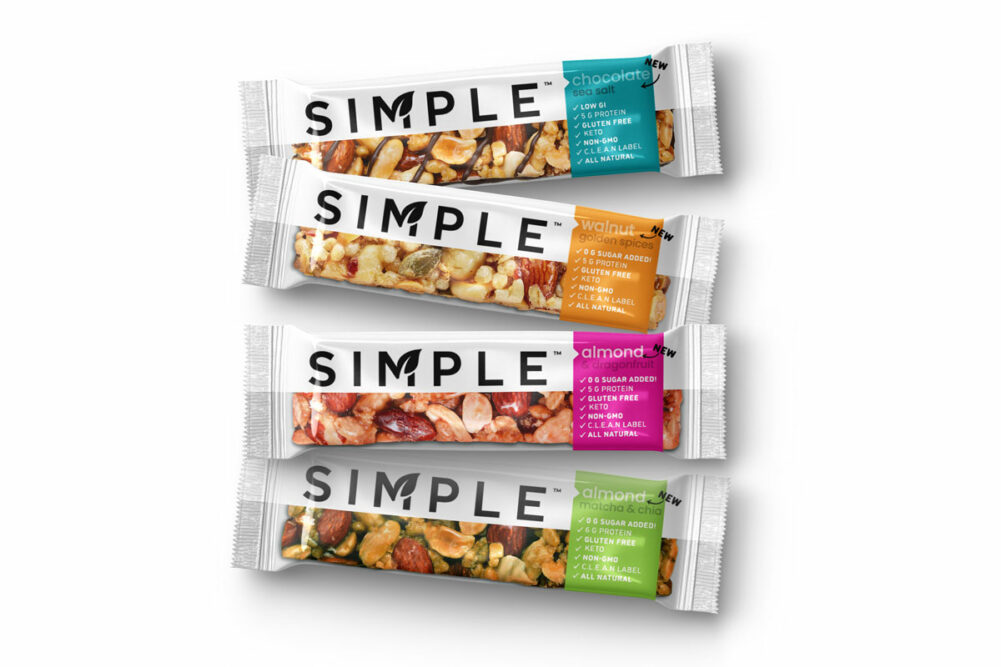 NASHVILLE, TENN. — Following what began as a three-week experiment to cut sugar from her diet, Amanda Ament created Simple Bars, a line of nut-based snack bars with zero added sugar.
NASHVILLE, TENN. — Following what began as a three-week experiment to cut sugar from her diet, Amanda Ament created Simple Bars, a line of nut-based snack bars with zero added sugar.
“A few years ago, I realized I was eating too much sugar,” said Ms. Ament, founder and chief executive officer of Simple Bars. “I would have it for breakfast, lunch and dinner. So, I challenged myself to stop sugar for three weeks. I started noticing all the benefits of it so I continued to add weeks, which turned into months and later Simple Bars.”
Ms. Ament was snacking on nuts and fruits to get her through her challenge, but soon tired of eating the same things and tinkered in her kitchen with the nuts and fruits she had on hand.
“I started making my own bars in the kitchen,” she said. “I’m a huge fan of superfoods, so anything that has chia, matcha or dragon fruit I would mix everything in and heat the syrup and tested different things to get the bar I wanted.”
After developing the initial recipes, Ms. Ament met with food scientists to formulate her product for commercial production, where she learned about allulose as a sweetener for her bars.
“Originally I used honey and maple syrup because I love both, but when I talked with a food scientist to formulate the bars she almost had a heart attack because she said maple syrup is extremely high in sugar, which at the time I didn’t realize,” Ms. Ament said.
She was drawn to allulose because of its benefits as a low-sugar option for her bars.
 Founder and CEO of Simple Bars Amanda, left, and co-founder Mélanie, right, value transparency and simple ingredients for their bars. Photo: Simple Bars
Founder and CEO of Simple Bars Amanda, left, and co-founder Mélanie, right, value transparency and simple ingredients for their bars. Photo: Simple Bars“She (the food scientist) introduced me to allulose, which I wasn’t aware of at the time, and said a lot of brands were using it,” Ms. Ament said. “We tested a few bars, and they surprisingly tasted sweet and didn’t leave an aftertaste of mint that you get from stevia. It (allulose) was a risk because allulose is not very well known, and if you don’t know something you’re not very trustworthy of it, but now we see a lot of products coming out using it and research on it.”
The low-sugar bars appeal to health-conscious consumers, millennials, consumers who focus on the keto diet, and on-the-go moms.
“Moms love it because they give it to their kids as a healthier snack,” Ms. Ament said.
The bars come in four flavors, including chocolate and sea salt; almond and dragon fruit; almond matcha chia; and walnut and golden spices. Future innovations may include mini bars and clusters.
Ms. Ament, along with her sister and co-founder, Mélanie, focus on non-traditional retail channels.
“We don’t go the traditional way you would think; we skip the wholesaler like the Trader Joe’s, Whole Foods, all those big chains because they have so many different fees,” Ms. Ament said. “We focus on co-working spaces, gyms, or hotels where they buy large amounts from us and give it free to their consumer. We’re also omnichannel in brick-and-mortar stores and are on Amazon and our website.”
The brand works with a co-packer that ships finished products to their fulfillment center in Nashville.
Simpleness and transparency are key factors of the Simple Bars business, which is how the bars got their name and packaging.
“I had a list of names I carried around with me while I was still in college,” Ms. Ament said. “I originally wanted Honest as the name, but it was already trademarked. After brainstorming with my sister, it (Simple) just made sense. We keep simple ingredients; we keep it minimalist.”
Ms. Ament had two options for her packaging: a longer shelf-life packaging or a clear window package.
“Metalized film packaging gives you one extra year of shelf life, which is good for manufacturers because you can keep the product longer,” she said. “But this was non-negotiable for me; I wanted (people) to see the product before they could buy it. We’re all about transparency. We keep it very simple. I wanted people to see it and trust it before buying.”
As young entrepreneurs, the sisters are aiming for a slow and steady pace to scale their business.
“We want to start small and grow,” Ms. Ament said. “We don’t want to be in five years and sell the business. That’s not at all our strategy. We want to expand and do more products with allulose.”
Enjoying this content? Learn about more disruptive startups on the Food Entrepreneur page.





